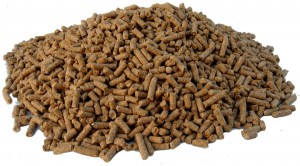Importance of Adequate Forage Intake for Horse Health

Proper nutrition is crucial for maintaining equine health and well-being. Forage intake for horses plays a fundamental role in their diet. Learn how a large breeding farm experienced issues in their horses’ health.
Transitioning from Textured Feed to Pellets: Initial Success and Concerns
A couple weeks ago, I transitioned a large breeding farm from textured feed to pellets. Despite the farm manager’s reluctance, the feed program was changed. The horses were doing well and everyone seemed pleased.
Emergence of Choke and Colic Symptoms: Investigating the Cause
Late one afternoon I received a frantic call from the farm manager. She said some of the horses were drooling and acting strange. She said they had just been fed an hour earlier and “it must be the pellets”. It sounded like possible choke issues.
I reviewed the feeding procedures with the manager, and she had fed hay prior to the concentrate. I suggested she keep a close watch on the horses and contact their veterinarian. About an hour later the manager called me again and said the choke issues had subsided, but now a few of the horses were presenting colic symptoms. She was awaiting the veterinarian, and again stressed “It must be the pellets”.
Veterinary Intervention and Surprising Discovery
The veterinarian treated the horses, questioning water consumption, and feed changes. The manager called me to tell me that all seemed quiet. I encouraged her to keep me advised of any changes. A few hours later I received a call that two horses were on their way to the veterinary hospital. This time the manager did not hold back about her concern with the pellets.
Lack of Turnout and Compromised Chewing Time: An Overlooked Factor
The next morning I called the farm manager to check on the horses. She told me that both mares had colic surgery. I asked if the veterinarian had determined the cause, and was surprised by the answer. For the past few days the horses were not getting turned out due to the cold weather. While inside the horses did not receive any additonal hay to compensate for the round bales they consumed during turnout. With the lack of chew time and boredom, the horses had eaten their pelleted bedding, which had in turn caused the colic.
Today’s lesson: Feeding 1 ½ to 2% of a horses body weight per day in forage really is essential for a healthy horse!
